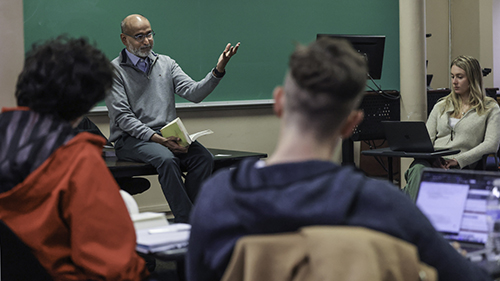
VIKASH YADAV
International Relations Department
This fall I am teaching one section of Introduction to International Relations and an intermediate level course on Globalization. I have links to my syllabi at the bottom of this page.

This fall I am teaching one section of Introduction to International Relations and an intermediate level course on Globalization. I have links to my syllabi at the bottom of this page.
Globalization is a process through which trans-boundary flows of goods, capital, labor, and ideas come to be increasingly interdependent on a planetary scale. The phenomenon of globalization affects core political institutions as well as multiple facets of cultural re-production, social practices, and conceptions of personal identity. Although technological innovations enhance processes of globalization, the legal and coercive authority of states ultimately underwrite the process of globalization. Globalization is a fragile phenomenon; it is neither inevitable nor unstoppable. This course investigates the political economy of the global order that has emerged in the post-Bretton Woods era.
As the world order created by the United States comes to a close and the center of power shifts from the North Atlantic to the Indo-Pacific, a new, multiplex world order is unfolding. The world order shapes our identity and security, as well as opportunities for employment, prosperity, and justice. This course aims to help you decipher emerging trends, persistent obstacles, and current events by equipping you with concepts, theories, and historical/cultural knowledge to assess critically a rapidly transforming world order.